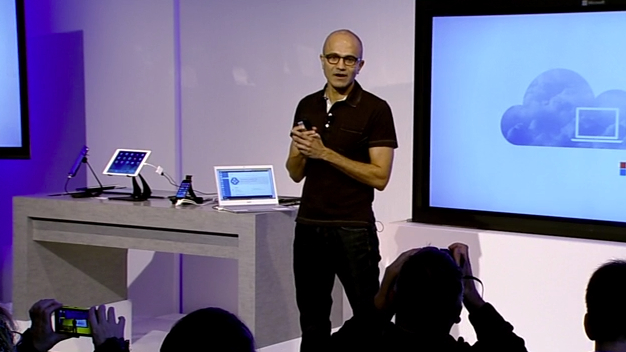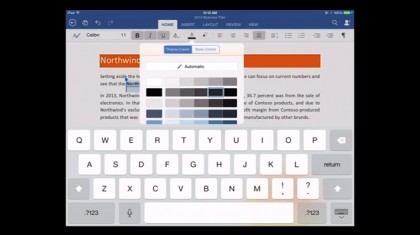Office for iPad: a return to form or a retreat to strength?
Microsoft's much-needed move is filled with metaphor

Microsoft just took a step that many have long awaited since Apple's iPad first launched April 3, 2010 - just shy of four years ago. The company's Office suite of productivity apps - meaning Word, Excel and PowerPoint - are now available on the Mac maker's titanic tablet, newly-minted CEO Satya Nadella recently announced.
While the move is an exciting one, it raises some questions. Namely, what took you so long? Soon after the iPad - the iPad 2 especially - the tablet scene exploded, and with it the BYOD (Bring Your Own Device) trend within businesses.
But rather than simply bringing its software suite to iOS, Microsoft tried its hand at competing with Apple directly with a slate of its own, the Surface. Despite a recent uptick in sales, it has yet to provide the results you would imagine the folks in Redmond, Wash. were hoping for.
Ubiquity ≠ equity
You can say that Windows is still arguably the most ubiquitous operating system in the home and at work. But its creator is losing traction on both fronts to iOS and Android, and fast.
According to Andreesen Horowitz partner Benedict Evans, Mac OS and iOS have officially caught up to Windows in terms of device sales. And Good Technology, an enterprise mobile services vendor, reports that the iPad holds nearly 92% of enterprise tablet deployments, while the iPhone accounts for 54% of the devices that use its services.

The Surface tablet and Windows Phone operating system were designed to provide the ease-of-use and comfort of a leisure device while offering the power and capability for enterprise users. It's safe to say that Microsoft's master plan for devices isn't working.
Here we are in early 2014, and Office is finally available on the iPad. According to Business Insider's sources, the move was a hot topic for debate within Microsoft, and that the only reason former CEO Steve Ballmer kept Office from iOS and Android was to give the Surface some much-needed leverage.
Are you a pro? Subscribe to our newsletter
Sign up to the TechRadar Pro newsletter to get all the top news, opinion, features and guidance your business needs to succeed!
From the outside looking in, it's both a sign of the company moving forward and an admission of its strengths (and weaknesses). Microsoft is an incredibly strong software company, but save for the Xbox, its hardware endeavors have almost all been met with setbacks.
Getting in front of the PC problem the right way
It's no secret that PC sales are tanking in the face of mobile devices. Windows 8 was Microsoft's first attempt at a tourniquet, which is, frankly, struggling to stop the bleeding. In that regard, Windows Phone and Surface aren't working either.
With Nadella at the helm and this recent launch, it seems as if Microsoft is admitting that the PC cannot be saved, or rather it has fundamentally changed and will continue to transform. Not to mention that the Xbox was a flash in the pan in the company's hardware attempts over the past 15 years or so.
I at least hope that's the case, because the company cannot afford many more attempts at catching up with the mobile revolution on the devices front. But, as Office for iPad might show, Microsoft could continue to have a leg in this race, as long as its powering what's behind those screens rather than putting together the parts itself.
Office for iPad is a return to form for Microsoft only in that it's a return to its core strength, which is what drove Microsoft to amass its billions. Even if Microsoft isn't a crucial part of the computing industry's shift to mobile, the company stands to make a nice buck off of moves like Office for iPad, not to mention making a number of customers very happy.
- Microsoft Build 2014 is bound to be very interesting
Joe Osborne is the Senior Technology Editor at Insider Inc. His role is to leads the technology coverage team for the Business Insider Shopping team, facilitating expert reviews, comprehensive buying guides, snap deals news and more. Previously, Joe was TechRadar's US computing editor, leading reviews of everything from gaming PCs to internal components and accessories. In his spare time, Joe is a renowned Dungeons and Dragons dungeon master – and arguably the nicest man in tech.
